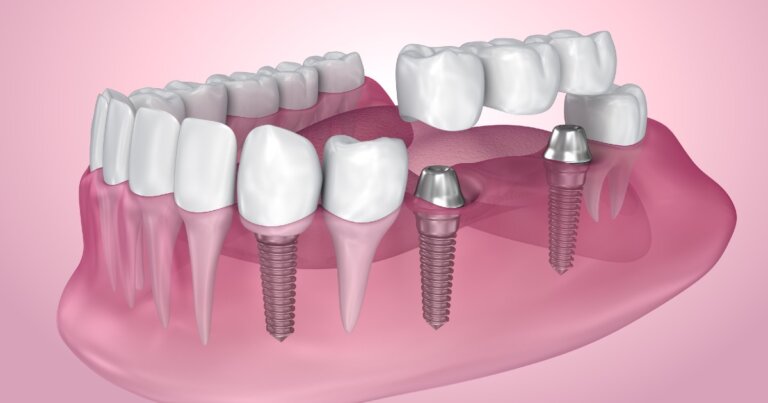Dental Implant Surgery Post-Operative Instructions

What You Should Do After Your Dental Implant Surgery
Dental implants are an effective solution for replacing missing teeth, consisting of a titanium screw that serves as a root, which is surgically placed into your jawbone. Once the implant osseointegrates, a prosthetic implant crown is attached, providing a natural look, feel, and function similar to your original teeth. To ensure a smooth recovery following your dental implant surgery, it’s crucial to follow these post-operative instructions:
Managing Bleeding
It’s normal to experience slight bleeding during the first couple of days after your surgery. If your saliva appears slightly pink, don’t worry; swallowing it is safe.
- Heavy bleeding: If you notice heavy bleeding, apply one or two pieces of wet gauze (provided by your dentist) directly over the surgical site. Firmly press on either side of the ridge with your fingers (from the cheek and tongue/palate sides), but avoid pressure directly on the implant or bone graft, as this could disturb the stitches and compromise healing.
- If bleeding persists or appears excessive: Contact your dentist immediately or seek emergency medical assistance.
Understanding Sutures
- Dissolvable Sutures: If your dentist used dissolvable sutures, they will naturally dissolve within 1-2 weeks.
- Non-Dissolvable Sutures: If you have non-dissolvable sutures, a follow-up appointment will be necessary for their removal.
Pain Management
Post-operative pain is common. Over-the-counter pain relievers such as ibuprofen (Advil) or acetaminophen (Tylenol) can help manage discomfort. Always consult your dentist regarding the appropriate dosage. A powerful combination for pain relief is 1000 mg of acetaminophen with 600 mg of ibuprofen every 4-6 hours, if you have no allergies or medical conditions contraindicating this.
Reducing Swelling
Swelling may occur within the first 48 hours post-surgery. To minimize it, apply an ice pack or a bag of frozen peas wrapped in a towel to your cheek for 10-15 minutes at a time.
Numbness Awareness
Local anesthetic effects can last for about 2-3 hours post-surgery. Be cautious with hot liquids and avoid biting your lip, cheek, or tongue until the numbness subsides.
Addressing Jaw Mobility
Local anesthetics may cause temporary jaw stiffness and discomfort, known as “myogenic trismus.” This condition can lead to difficulty in opening your mouth wide. For tips on managing this condition at home, check out this link.
Antibiotics
If your dentist prescribed antibiotics, take them as directed until the full course is completed. Should you experience worsening symptoms or difficulty swallowing or breathing after three days, contact your dentist or seek immediate medical help.
Maintaining Oral Hygiene
For optimal healing:
- First 24 Hours: No brushing, flossing, or rinsing.
- After 24 Hours: Rinse gently with warm salt water using a syringe provided by your dentist (limit to once daily). You may resume brushing and flossing your other teeth but brushing with water only at first.
- After 48 Hours: You can reintroduce toothpaste. After one week, gently clean the area around the implant to keep it infection-free.
Avoid Smoking and Alcohol
Both smoking and alcohol can hinder healing and increase the risk of implant failure. It’s essential to abstain from these substances for at least four weeks post-surgery.
Limit Physical Activity
Strenuous physical activity can lead to discomfort and increased bleeding at the surgical site. Light normal activities can typically be resumed after a few days.
Dietary Restrictions
In the initial stages of recovery:
- Avoid: Chewing on the surgical site and consuming extremely hot or cold foods for the first 48 hours.
- Stay Hydrated: Drink plenty of water.
- Steer Clear of: Spicy, acidic foods and small nuts or seeds that could irritate the healing area.
Have Questions?
If you have any questions or concerns about your recovery from dental implant or bone graft surgery, don’t hesitate to contact us. Your health and comfort are our top priorities!

